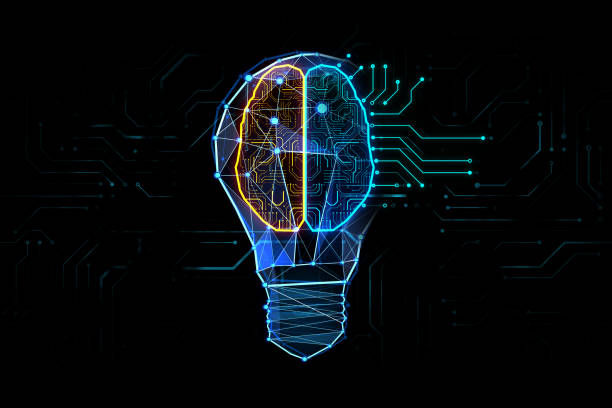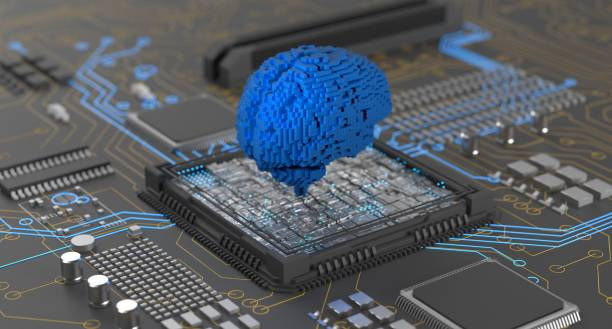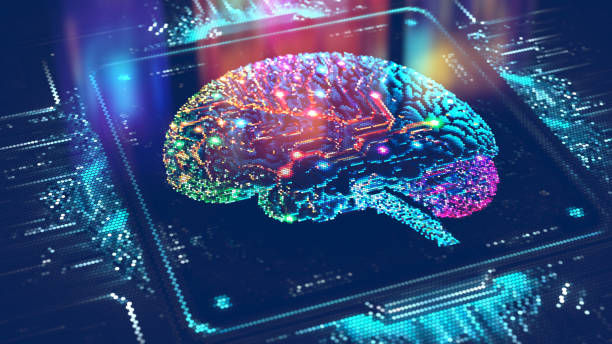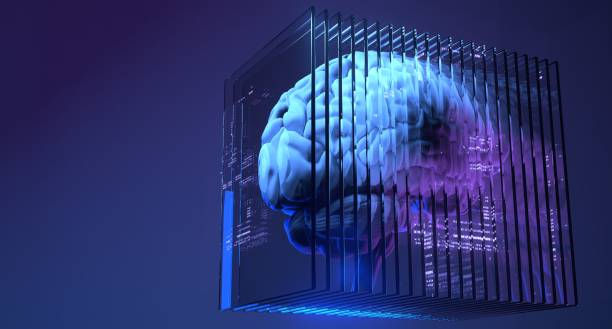"The Future of AI and Machine Learning:
- The Moolah Team
- Jul 6, 2023
- 19 min read
Trends and Predictions for the Next Decade":
Finally, we will write a blog that looks to the future of AI and machine learning, discussing some of the most promising areas of research and the potential impact of these technologies on society.
We will also explore some of the challenges that need to be addressed in order to ensure that AI is developed and used responsibly.
I. Introduction
In recent years, the field of artificial intelligence (AI) and machine learning has experienced rapid growth and development. AI technologies have already started transforming various industries, from healthcare to transportation, and the potential for further innovation and impact is significant. As we look to the future, it is essential to consider the potential benefits and challenges of AI and machine learning, as well as the responsibility that comes with their development and use.
One of the most exciting aspects of AI is its potential to solve complex problems and improve our quality of life. For example, natural language processing (NLP) technology can help us communicate more effectively with machines, making our interactions with technology more intuitive and seamless. Computer vision can help us better understand and analyze visual data, opening up new possibilities in fields such as healthcare and agriculture. Robotics technology can help automate and optimize tasks in industries ranging from manufacturing to logistics.
However, as with any powerful technology, there are also concerns and challenges related to the development and use of AI. For example, there is a risk that AI may displace human workers and exacerbate inequality if not implemented responsibly. There are also concerns related to privacy, security, and bias in AI systems. It is therefore crucial to ensure that AI is developed and used in a way that is ethical, transparent, and accountable.
The purpose of this blog post is to explore some of the most promising areas of research in AI and machine learning, as well as the potential impact of these technologies on society. We will also delve into some of the challenges that need to be addressed in order to ensure that AI is developed and used responsibly. By understanding these trends and challenges, we can work towards a future where AI is a force for good, improving our lives while respecting our values and rights.

II. Trends in AI and Machine Learning
The field of AI and machine learning is constantly evolving, with new breakthroughs and trends emerging all the time. In this section, we will explore some of the most promising areas of research and development in AI, as well as the potential impact of these trends on society.
A. Deep Learning
One of the most significant recent developments in AI is deep learning. This approach involves training neural networks with multiple layers to process and analyse complex data, such as images, audio, and text. Deep learning has enabled breakthroughs in areas such as computer vision and natural language processing, and is expected to continue to be a major area of research and development in the coming years.
B. Reinforcement Learning
Another promising area of research is reinforcement learning, which involves training AI systems to make decisions based on trial and error. Reinforcement learning has been used to develop AI systems that can play complex games such as Go and chess, and has potential applications in areas such as robotics and autonomous vehicles.
C. Explainable AI
As AI systems become more advanced and complex, there is a growing need for explainable AI. This refers to AI systems that can provide transparent explanations for their decisions and actions, making it easier for humans to understand and trust them. Explainable AI has implications for areas such as healthcare, finance, and criminal justice, where it is essential to understand the reasoning behind decisions made by AI systems.
D. Edge Computing
Edge computing refers to the trend of processing data closer to the source, rather than sending it to a centralized cloud server. This approach has the potential to reduce latency and improve the efficiency of AI systems, making them more responsive and agile. Edge computing also has implications for areas such as privacy and security, as it enables data to be processed locally rather than being sent to a remote server.
E. Quantum Computing
Quantum computing is a nascent field that has the potential to revolutionize AI and machine learning. Quantum computers can process vast amounts of data in parallel, making it possible to solve problems that are currently intractable for classical computers. However, there are also significant technical and practical challenges to overcome in order to realize the full potential of quantum computing for AI.
Overall, these trends and developments have the potential to transform various industries and aspects of our lives, from healthcare to transportation. However, it is essential to ensure that these technologies are developed and used in a way that is ethical and responsible, with appropriate safeguards in place to address concerns such as privacy, security, and bias.

III. The Potential Impact of AI and Machine Learning on Society
While AI and machine learning have the potential to transform various industries and improve many aspects of our lives, there are also concerns about their impact on society. In this section, we will explore some of the potential benefits and challenges of these technologies, and how they could shape the future of our society.
A. Benefits of AI and Machine Learning
AI and machine learning have the potential to bring significant benefits to society. For example, they can improve efficiency and accuracy in areas such as healthcare and transportation, reducing costs and improving outcomes. They can also enhance our ability to analyse complex data and make informed decisions, leading to new discoveries and innovations.
In addition, AI and machine learning can also help address some of the biggest challenges facing our society, such as climate change, poverty, and disease. For example, they can be used to develop more effective and sustainable energy systems, improve access to education and healthcare, and advance our understanding of complex biological systems.
B. Challenges of AI and Machine Learning
However, there are also significant challenges associated with the development and use of AI and machine learning. One major concern is the potential for these technologies to displace workers, particularly in industries such as manufacturing and transportation. This could lead to widespread job loss and economic disruption, with significant implications for society as a whole.
Another challenge is the potential for AI and machine learning to perpetuate and amplify existing biases and inequalities, particularly in areas such as criminal justice and hiring. Without appropriate safeguards and oversight, these technologies could reinforce discriminatory practices and exacerbate social and economic disparities.
Finally, there are concerns about the ethical implications of AI and machine learning, particularly in areas such as autonomous weapons and surveillance. These technologies have the potential to enable new forms of power and control, with implications for individual autonomy and privacy.
C. Ensuring Responsible Development and Use of AI and Machine Learning
To address these challenges and ensure that AI and machine learning are developed and used responsibly, it is essential to adopt a proactive and collaborative approach. This involves engaging with stakeholders from various sectors, including academia, industry, government, and civil society, to develop ethical frameworks and guidelines for the development and use of these technologies.
It also involves investing in research and development that prioritizes ethical considerations, such as fairness, accountability, and transparency. This could include developing new techniques and tools for detecting and addressing bias in AI systems, as well as promoting greater transparency and explainability in decision-making processes.
Overall, the impact of AI and machine learning on society will depend on how these technologies are developed and used. By adopting a responsible and ethical approach, we can harness the potential of these technologies to address some of the biggest challenges facing our society, while minimizing their negative impacts.

IV. Promising Areas of Research in AI and Machine Learning
AI and machine learning are rapidly evolving fields, with new techniques and applications emerging all the time. In this section, we will explore some of the most promising areas of research in these fields, and how they could shape the future of AI and machine learning.
A. Deep Learning
Deep learning is a subset of machine learning that uses artificial neural networks to analyse and learn from large amounts of data. This approach has already shown significant promise in areas such as image and speech recognition, natural language processing, and autonomous driving.
One of the key advantages of deep learning is its ability to learn and adapt to new data, without the need for explicit programming or rules. This makes it particularly well-suited to complex and dynamic environments, where traditional rule-based systems may struggle.
As deep learning techniques continue to evolve and improve, we can expect to see even greater applications and advancements in areas such as personalized medicine, robotics, and predictive analytics.
B. Reinforcement Learning
Reinforcement learning is a type of machine learning that involves an agent learning to make decisions through trial and error, based on feedback from its environment. This approach has shown particular promise in areas such as game playing and robotics, where complex decision-making and control are required.
One of the key advantages of reinforcement learning is its ability to learn and adapt in real-time, based on the feedback it receives from its environment. This makes it particularly well-suited to dynamic and uncertain environments, where traditional rule-based systems may struggle.
As reinforcement learning techniques continue to evolve and improve, we can expect to see even greater applications and advancements in areas such as autonomous vehicles, intelligent agents, and decision support systems.
C. Explainable AI
Explainable AI is a field of research focused on developing AI systems that are transparent and explainable, so that users can understand how they work and why they make certain decisions. This is becoming increasingly important as AI is used in more critical and sensitive applications, such as healthcare, finance, and criminal justice.
One of the key challenges of explainable AI is developing methods and techniques that are both accurate and interpretable. This requires balancing the need for complex and sophisticated models with the need for transparency and simplicity.
As explainable AI techniques continue to evolve and improve, we can expect to see even greater applications and advancements in areas such as fraud detection, diagnosis and treatment of disease, and legal decision-making.
D. Quantum Computing
Quantum computing is a rapidly advancing field that has the potential to revolutionize computing and machine learning. Unlike classical computing, which uses bits to represent data and perform computations, quantum computing uses quantum bits (qubits), which can represent multiple states at once.
One of the key advantages of quantum computing is its ability to perform certain calculations exponentially faster than classical computing, which could have significant implications for machine learning and AI. For example, it could enable more efficient optimization algorithms and faster analysis of large datasets.
As quantum computing technologies continue to evolve and improve, we can expect to see even greater applications and advancements in areas such as drug discovery, materials science, and cryptography.
Overall, these are just a few of the many promising areas of research in AI and machine learning. As these fields continue to evolve and mature, we can expect to see even greater applications and advancements in a wide range of industries and domains.

V. Ethical and Social Implications of AI
Artificial intelligence is undoubtedly a revolutionary technology that has the potential to solve some of the most pressing problems facing humanity. However, it also poses significant ethical and social challenges that need to be addressed. As AI continues to permeate every aspect of society, it is essential to ensure that it is developed and used in a responsible and ethical manner.
A. Ethical Considerations
One of the most significant ethical considerations surrounding AI is the issue of bias. AI algorithms are only as unbiased as the data they are trained on, and if the data contains biases, these biases will be reflected in the algorithm's output. This can have serious consequences, such as perpetuating discrimination and exacerbating social inequalities. To address this issue, it is essential to ensure that AI algorithms are trained on diverse and representative data sets and that there is transparency in how the algorithms work and make decisions.
Another ethical consideration is the potential for AI to be used for nefarious purposes, such as cybercrime or terrorism. AI-powered cyberattacks, for example, could be more sophisticated and effective than traditional attacks, and it may be challenging to detect and respond to them. It is therefore essential to ensure that AI is developed in a way that prioritizes security and resilience.
B. Social Implications
The increasing use of AI in the workplace has raised concerns about job displacement and the potential for AI to exacerbate income inequality. While AI has the potential to automate many routine and repetitive tasks, which could free up workers to focus on more creative and rewarding work, it could also lead to job losses in certain industries. It is therefore essential to consider how AI can be used to create new jobs and opportunities and to support workers in transitioning to new roles.
Another social implication of AI is its potential impact on privacy. AI-powered surveillance systems, for example, could be used to monitor people's movements and activities, raising concerns about civil liberties and human rights. It is essential to ensure that AI-powered surveillance systems are developed and used in a way that respects individuals' privacy rights and is consistent with international human rights standards.
C. Responsible AI Development
To address these ethical and social considerations, it is crucial to ensure that AI is developed and used in a responsible and ethical manner. This requires a multidisciplinary approach that involves not only computer scientists and engineers but also ethicists, social scientists, and policymakers.
One way to promote responsible AI development is through the use of ethical guidelines and codes of conduct. For example, the European Union's General Data Protection Regulation (GDPR) sets out strict rules for how personal data can be collected, processed, and used, including specific provisions for AI-powered systems. Similarly, the IEEE Global Initiative on Ethics of Autonomous and Intelligent Systems has developed a set of ethical guidelines for the design and development of AI systems.
Another approach is to promote transparency and accountability in AI decision-making. This can be achieved through the use of explainable AI (XAI) techniques, which allow users to understand how AI systems make decisions and to identify potential biases or errors. XAI can also help build trust between AI systems and the people who interact with them.
Finally, it is essential to ensure that AI is developed in a way that reflects diverse perspectives and values. This means involving a range of stakeholders, including representatives from different cultural, social, and economic backgrounds, in the design and development process.
Overall, the ethical and social implications of AI are complex and multifaceted. As AI continues to evolve and become more prevalent in society, it is essential to ensure that it is developed and used in a responsible and ethical manner. By promoting transparency, accountability, and diversity in AI development, we can harness the potential of this revolutionary technology while minimizing its potential negative impacts.

VI. Potential Challenges and Risks
Despite the exciting developments and opportunities presented by AI and machine learning, there are also potential challenges and risks that need to be addressed to ensure that these technologies are developed and used responsibly.
Here are some of the main challenges that we should be aware of:
A. Bias and Discrimination
One of the most significant challenges of AI and machine learning is the issue of bias and discrimination. These technologies learn from existing data, and if that data is biased or discriminatory, then the AI will replicate and amplify that bias. This can result in unfair and discriminatory decision-making, such as biased hiring practices, facial recognition technology that misidentifies people of colour, and credit scoring algorithms that discriminate against certain groups.
B. Privacy and Security
AI and machine learning technologies rely on vast amounts of data to function, which can raise privacy and security concerns. If this data falls into the wrong hands, it could be used for nefarious purposes, such as identity theft or cyber attacks. Additionally, there is the risk that AI systems could be hacked or manipulated, leading to potential disasters, such as autonomous vehicles being hijacked.
C. Transparency and Explainability
As AI becomes more sophisticated, it can be challenging to understand how it arrives at its decisions. This can be a problem in industries such as healthcare or finance, where the decisions made by AI can have significant consequences. It's essential that we develop AI systems that can explain how they arrived at a decision, so that we can ensure they are making fair and ethical choices.
D. Job Displacement
AI and machine learning have the potential to automate many jobs, which could lead to significant job displacement. While new jobs will be created in the development and maintenance of AI systems, there will be many people who will need to retrain for new careers. It's essential that we address the social and economic implications of job displacement and work to create a more equitable society.
E. Regulation and Governance
As AI and machine learning technologies become more prevalent, there is a need for regulation and governance to ensure that they are developed and used responsibly. This will involve collaboration between governments, the private sector, and academia to develop frameworks that address ethical, legal, and social issues related to AI.
In conclusion, while AI and machine learning offer many exciting possibilities for the future, we need to be aware of the potential challenges and risks that they pose. By addressing these challenges and working to develop AI systems that are transparent, unbiased, and ethical, we can ensure that these technologies are used to create a better, more equitable society for all.

VII. Challenges and Responsibilities of AI Development and Use
As promising as the future of AI and machine learning may seem, there are also significant challenges that need to be addressed to ensure that these technologies are developed and used responsibly. In this section, we will explore some of the key challenges and responsibilities associated with AI.
A. Bias and Fairness
One of the most significant challenges facing AI development and use is the issue of bias and fairness. AI algorithms are only as good as the data they are trained on, and if the data is biased, the algorithm will be biased as well. This can lead to unfair or discriminatory outcomes, particularly in areas such as hiring, lending, and law enforcement.
To address this challenge, researchers and developers must ensure that their algorithms are trained on diverse and representative data sets. They must also be transparent about how the algorithm works and what data is being used to train it.
B. Privacy and Security
Another major challenge associated with AI is privacy and security. As AI becomes more ubiquitous, it is increasingly being used to process sensitive personal information, such as medical records and financial data. This creates significant privacy and security risks, particularly if the data is mishandled or falls into the wrong hands.
To address this challenge, developers must ensure that their AI systems are secure and that sensitive data is protected. They must also be transparent about how the data is being used and ensure that users have control over their personal information.
C. Accountability and Transparency
AI algorithms can have significant impacts on people's lives, and it is important that there is accountability and transparency around how these algorithms are developed and used. However, this can be challenging, particularly if the algorithms are complex and difficult to understand.
To address this challenge, developers must be transparent about how their algorithms work and what data they are using. They must also ensure that there are mechanisms in place for people to challenge and appeal decisions made by AI systems.
D. Ethical Considerations
Finally, there are a range of ethical considerations associated with AI development and use. For example, there are concerns around the use of AI in warfare, the impact of AI on employment, and the potential for AI to be used in ways that undermine human rights and freedoms.
To address these ethical considerations, developers and policymakers must engage in open and transparent dialogue about the potential impacts of AI. They must also ensure that AI is developed and used in ways that are consistent with ethical principles, such as respect for human dignity, autonomy, and privacy.
In conclusion, the future of AI and machine learning is both exciting and challenging. While these technologies have the potential to revolutionize many aspects of society, there are also significant challenges and responsibilities associated with their development and use. As we move forward, it is essential that we address these challenges and ensure that AI is developed and used in ways that are ethical, responsible, and beneficial for all.

VIII. Ethical Considerations for AI and Machine Learning
The development and deployment of AI and machine learning technologies have already raised significant ethical concerns. As these technologies become more advanced and widespread, it is crucial that we address these concerns and ensure that AI is developed and used in an ethical and responsible manner.
One of the most significant ethical concerns with AI is its potential to reinforce and amplify existing biases and discrimination in society. Machine learning algorithms are only as good as the data they are trained on, and if that data is biased, the algorithm will learn and perpetuate those biases. For example, if a facial recognition system is trained primarily on data from white individuals, it may not accurately recognize faces of people of colour. This could lead to discriminatory outcomes, such as false arrests or denials of access to services.
Another ethical concern is the potential for AI and machine learning to automate jobs and displace human workers. While automation can increase efficiency and productivity, it can also lead to job loss and economic inequality. It is crucial that we consider the potential impacts of AI on the labour market and work to mitigate any negative consequences. This could involve investing in retraining programs and providing a social safety net for those who lose their jobs due to automation.
AI and machine learning also raise concerns around privacy and security. As these technologies collect and analyse vast amounts of personal data, there is a risk of that data being misused or stolen. It is crucial that we develop strong data protection regulations and ensure that AI systems are designed with privacy and security in mind.
Finally, there are concerns around the use of AI in warfare and the potential for these technologies to be used to develop autonomous weapons. The development of such weapons could lead to a new arms race and a significant increase in the risk of catastrophic events. It is essential that we work to prevent the development and deployment of autonomous weapons and ensure that any use of AI in military contexts is governed by ethical and legal frameworks.
In conclusion, while AI and machine learning hold immense potential for improving our lives, it is crucial that we address the ethical concerns associated with these technologies. We must ensure that AI is developed and used in an ethical and responsible manner, taking into account issues of bias, job displacement, privacy, and security, and preventing the development of autonomous weapons. Only then can we fully realize the promise of these transformative technologies while avoiding their potential harms.

IX. Challenges and Risks of AI Development
As promising as AI technology may be, there are still several challenges and risks that need to be addressed in order to ensure that it is developed and used responsibly.
Here are some of the key challenges and risks associated with AI development:
A. Bias and Fairness
One of the biggest challenges with AI is the potential for bias and unfairness. This can happen when the data used to train an AI system is biased, or when the algorithms used to make decisions are not transparent. This can lead to discrimination against certain groups of people, and it is important to address this issue in order to ensure that AI is used fairly and ethically.
B. Privacy and Security
Another major challenge with AI is the potential for privacy and security breaches. As AI systems become more complex and are used to process more sensitive data, it is important to ensure that they are secure and protected from cyberattacks. This is especially important in areas such as healthcare and finance, where sensitive data is often involved.
C. Job Displacement
The rise of AI and automation has the potential to displace many jobs that are currently done by humans. While this could lead to increased efficiency and productivity, it could also lead to widespread job losses and economic disruption. It is important to consider the impact of AI on the workforce and to develop strategies for retraining and reskilling workers who may be displaced by automation.
D. Control and Accountability
As AI systems become more complex and are used to make more important decisions, it is important to ensure that there is proper control and accountability in place. This includes ensuring that humans are able to override AI decisions when necessary, and that there are clear lines of responsibility when something goes wrong.
E. Ethical Concerns
There are also a number of ethical concerns associated with AI development. For example, some people have raised concerns about the potential use of AI for surveillance or other forms of control. It is important to consider these ethical concerns and to ensure that AI is developed in a way that is consistent with our values and principles.
In order to address these challenges and risks, it is important for developers, policymakers, and society as a whole to work together to ensure that AI is developed and used responsibly. This will require ongoing research, discussion, and debate, as well as a commitment to transparency and accountability in the development and use of AI technology. Ultimately, the success of AI will depend on our ability to address these challenges and to ensure that AI is used in a way that benefits everyone.

X. The Ethical Implications of AI
As AI and machine learning continue to advance and become more integrated into society, it is important to consider the ethical implications of these technologies. There are several ethical issues that need to be addressed to ensure that AI is developed and used responsibly.
One of the main ethical concerns with AI is bias. Machine learning algorithms are only as unbiased as the data they are trained on, and if that data is biased, the resulting AI will also be biased. This can have serious implications, especially in areas such as hiring and lending decisions, where biases could lead to discrimination.
Another ethical concern is privacy. AI relies on large amounts of data, and as AI becomes more advanced, it will become increasingly important to protect individuals' personal data. There is also the risk that AI could be used to gather information without individuals' consent or knowledge, raising questions about the balance between privacy and security.
AI also raises questions about accountability. Who is responsible when an AI system makes a mistake or causes harm? Is it the developer, the user, or the AI system itself? These questions will need to be addressed in order to establish accountability frameworks that can ensure that AI is developed and used responsibly.
Finally, there is the question of the impact of AI on employment. As AI systems become more advanced, they are likely to replace many jobs that are currently performed by humans. This could lead to widespread job displacement and economic disruption, and it is important to consider how society can adapt to these changes.
In conclusion, while AI and machine learning hold enormous promise, it is important to consider the ethical implications of these technologies. By addressing these ethical concerns, we can ensure that AI is developed and used responsibly, and that it benefits society as a whole.

XI. Conclusion: The Future of AI and Machine Learning
In conclusion, the future of AI and machine learning is incredibly exciting, with vast potential for innovation and progress in a variety of fields. As we've discussed, there are numerous trends and developments to look out for in the next decade, from advancements in natural language processing and computer vision to the continued growth of autonomous systems and robotics.
However, it's important to recognize that there are also significant challenges to be addressed if we want to ensure that AI is developed and used responsibly. These challenges include concerns around bias and discrimination in AI algorithms, the need for robust data privacy and security measures, and the potential for job displacement and economic inequality as a result of increased automation.
It's crucial that as we continue to push the boundaries of what's possible with AI and machine learning, we do so in a way that prioritizes ethical considerations and human values. This will require ongoing dialogue and collaboration between experts in the field, policymakers, and the wider public.
Ultimately, the impact of AI and machine learning on society will depend on how we choose to develop and deploy these technologies. If we're able to strike the right balance between innovation and responsibility, the potential benefits of AI are enormous. We have the opportunity to transform countless industries, improve healthcare outcomes, and tackle some of the world's most pressing problems.
As we look ahead to the next decade, it's clear that AI and machine learning will continue to be a driving force for progress and change. By working together to address the challenges and opportunities presented by these technologies, we can create a brighter future for everyone.
In conclusion, the future of AI and machine learning is exciting and full of promise. With ongoing advancements in research, we can expect to see significant progress in areas such as natural language processing, computer vision, and personalized medicine. However, it's important to acknowledge that these developments also come with ethical, legal, and societal considerations. As we continue to explore the potential of AI and machine learning, it's critical that we prioritize responsible development and use of these technologies. At Moolah, we're committed to staying at the forefront of these trends and helping to shape a future where AI and machine learning are leveraged for the benefit of all. Thanks for reading, and don't forget to subscribe to our newsletter to stay up-to-date on the latest developments in this exciting field!
Moolah







Comments